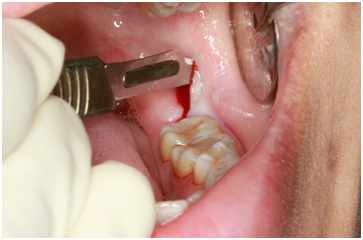Surgical Tooth Removal - Abu Dhabi - Dubai
Surgical tooth removal, also known as tooth extraction or dental extraction, is a procedure performed by a dentist or oral surgeon to remove a tooth from its socket in the jawbone. While many tooth extractions can be done through a simple procedure called "routine extraction," some cases require a surgical approach.
Here are some situations where surgical tooth removal may be necessary:
- 1. Impacted Wisdom Teeth: Wisdom teeth, also known as third molars, often become impacted or trapped in the jawbone or gums. If they do not erupt properly or cause problems like pain, infection, or damage to surrounding teeth, surgical extraction may be recommended.
- 2. Broken or Fractured Teeth: When a tooth is severely broken or fractured due to trauma or decay, the dentist may need to perform a surgical extraction. In such cases, the tooth may be difficult to grasp or access, making a surgical approach necessary.
- 3. Severely Damaged or Infected Teeth: Teeth that are severely decayed, infected, or damaged beyond repair may require surgical extraction. This is often the case when the tooth cannot be restored through other dental procedures like root canal treatment.
- 4. Crowded Teeth or Orthodontic Treatment: Sometimes, teeth may need to be removed to create space for proper alignment, especially when undergoing orthodontic treatment like braces. In such cases, the dentist or orthodontist may recommend surgical extraction to achieve the desired results.
During a surgical tooth extraction, the dentist or oral surgeon will administer local anesthesia to numb the area around the tooth. In some cases, general anesthesia may be used, especially if multiple teeth are being removed or the procedure is complex. The dentist then makes an incision in the gum tissue to expose the tooth and bone. They may need to remove some bone tissue or section the tooth into smaller pieces to facilitate its removal. Once the tooth is extracted, the area is typically stitched closed, and gauze is placed over the extraction site to control bleeding.
After the surgery, it is important to follow the dentist's instructions for post-operative care, which may include taking prescribed medications, applying ice packs to reduce swelling, avoiding certain foods or activities, and maintaining proper oral hygiene.
It's worth noting that surgical tooth extraction is a common dental procedure, and dentists and oral surgeons are experienced in performing it safely and effectively. If you require a tooth extraction, it's best to consult with a dental professional who can evaluate your specific situation and determine the most appropriate treatment plan for you.

